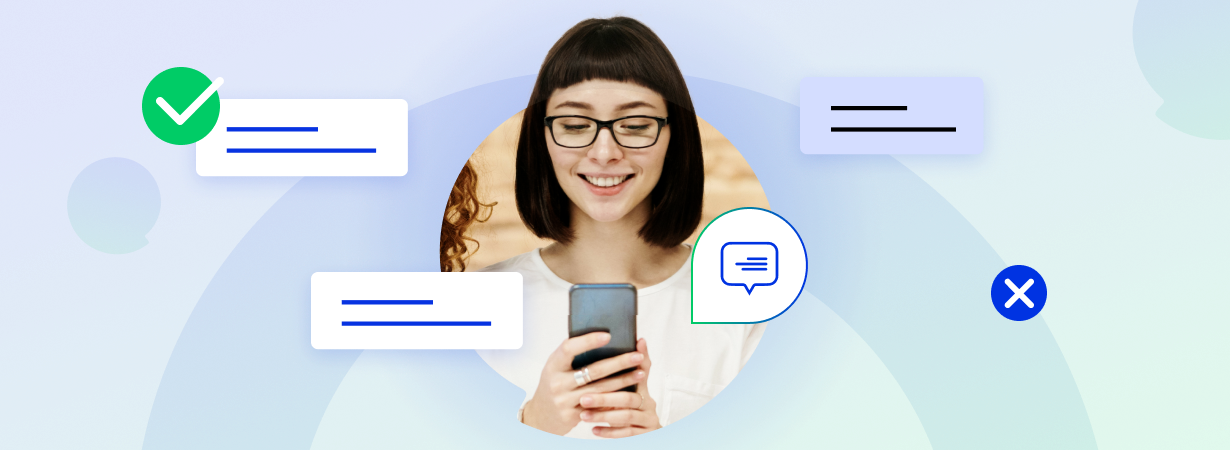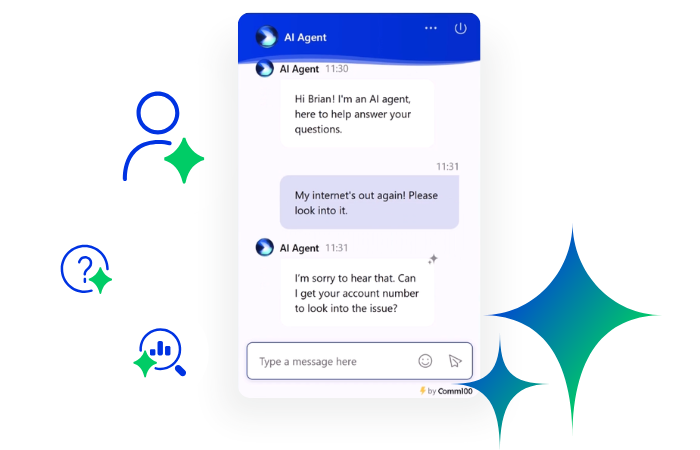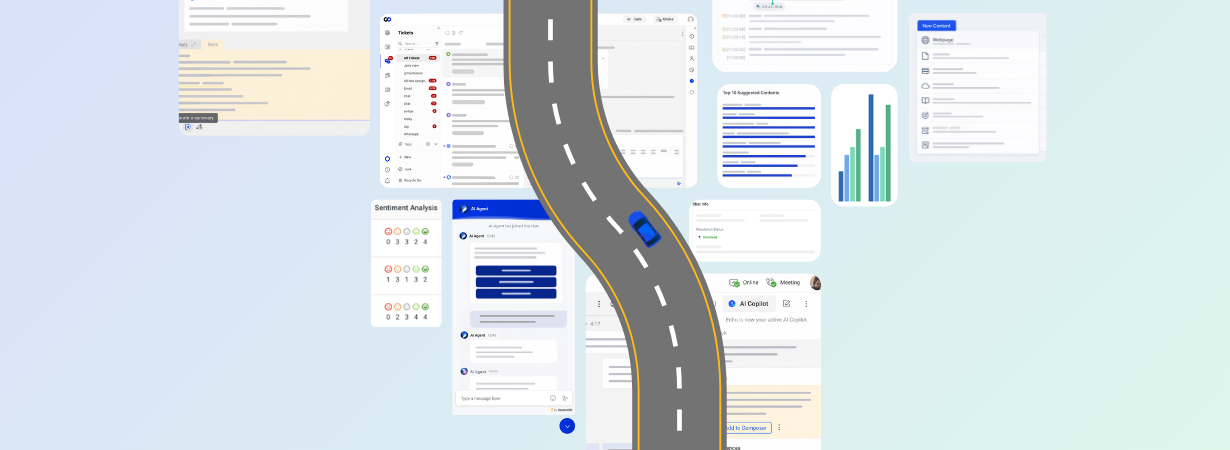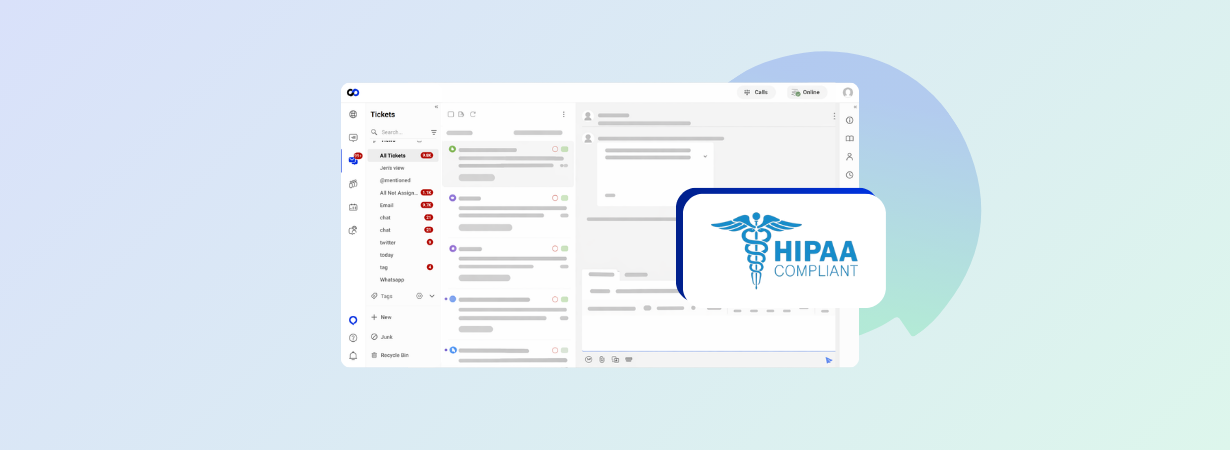The live chat widget has become a mainstay on almost every institutional and business website, and for good reason. What started as a simple messaging tool has evolved into one of the most effective customer service channels available today.
Recent research from McKinsey shows that digital-chat services have achieved high levels of acceptance across all generations, while Gartner predicts that live chat and self-service technologies will surpass traditional channels like phone and email as the most valuable customer service technologies by 2027.
At this point, we’re all accustomed to using live chat when we need support. However, implementing live chat effectively isn’t as simple as dropping a widget on your website and hoping for the best.
In the same research, McKinsey reveals that customer care organizations are facing their greatest challenge in decades as they must prepare for an AI-enabled future while simultaneously meeting tough commercial targets and rising customer expectations.
Whether you’re a university managing student inquiries, a credit union providing member support, or a government agency serving citizens, understanding both the advantages and disadvantages of live chat is essential for making smart implementation decisions. This guide breaks down everything you need to know to leverage live chat successfully for your organization.
What is Live Chat?
Live chat is a real-time, text-based messaging system that enables customers to communicate directly with business representatives through a website or mobile application.
Unlike traditional support channels that require customers to leave their current task such as making a phone call or sending an email, live chat allows for instant, contextual assistance without disrupting the user’s workflow.
The 15 Key Advantages of Live Chat
1. Instant Response Times
Real-time communication remains the cornerstone advantage of live chat. Unlike traditional support channels that create delays and friction, live chat allows businesses to address queries, concerns, and issues the moment they arise. This immediacy significantly enhances customer satisfaction and eliminates the frustration of waiting hours or days for email responses.
2. Enhanced Agent Productivity
Customer service representatives can handle multiple conversations simultaneously through live chat, unlike phone calls which require dedicated one-on-one attention. This efficiency multiplier can lead to substantial operational cost reductions while improving response times. Modern platforms enable agents to juggle several interactions without compromising service quality.
3. Seamless User Experience
Live chat eliminates context switching by allowing customers to get help without leaving their current task. Whether students are researching course requirements, credit union members are reviewing account options, or citizens are accessing government services, they can receive assistance while maintaining their workflow. This convenience factor allows customers to multitask effectively while awaiting responses.
4. AI-Enhanced Personalization
Modern platforms leverage AI in customer service to deliver highly personalized experiences. Representatives can access browsing history, previous interactions, and account information while AI copilots in customer service help craft tailored responses.
Organizations can deploy different types of AI agents to handle routine inquiries automatically, escalating complex issues to human agents with full context.
Comm100 Live Chat
Modern platforms leverage AI to deliver highly personalized experiences with copilots assisting agents and chatbots resolving routine inquiries.
Learn more
Solution
5. Always-On Availability
AI customer service software and tools enable round-the-clock support coverage, ensuring assistance is available regardless of time zones or business hours. Advanced AI can handle a significant portion of common inquiries without human intervention, providing immediate responses even during off-hours.
6. Cost Efficiency
Live chat demonstrates superior cost effectiveness compared to traditional phone support. Organizations can manage higher volumes of customer interactions with fewer resources, making it particularly attractive for budget-conscious institutions like universities and government agencies that need to maximize service delivery within constrained budgets. Government agencies can follow foundational steps to improving service delivery to optimize their operations.
7. Revenue Generation and Conversion
Live chat directly influences purchasing decisions by addressing concerns in real-time during critical moments in the customer journey.
This immediate intervention capability reduces abandonment rates and creates opportunities for guidance through complex processes, whether that’s enrollment decisions, financial product selections, or service applications. Industries like iGaming can track key metrics to measure live chat’s impact on conversions.
8. Valuable Customer Insights
Every chat interaction generates data that organizations can analyze to improve services and identify trends. This feedback loop reveals common pain points, popular inquiry topics, and opportunities for process improvements, enabling data-driven enhancements to customer experience strategies.
9. Competitive Differentiation
In an increasingly digital-first world, offering sophisticated live chat creates a significant advantage over competitors who haven’t embraced modern support technologies. When evaluating top live chat software vendors, organizations can identify features that set them apart from basic chat implementations.
10. Proactive Engagement
Advanced live chat platforms enable proactive outreach based on user behavior, allowing organizations to offer assistance before customers encounter problems. This proactive approach can guide users through complex processes, highlight relevant resources, or provide timely reminders about important deadlines or requirements.
11. Omnichannel Integration
Modern platforms integrate live chat seamlessly with email, social media, messaging apps like WhatsApp, WeChat, LINE, Telegram, and other touchpoints, creating unified customer experiences. This integration ensures conversation continuity regardless of how customers choose to engage.
Comm100 Live Chat
Modern platforms integrate live chat seamlessly with email social media and messaging apps creating unified customer experiences.
Learn more
Solution
12. Scalable Support During Peak Periods
Live chat excels during high-demand periods when traditional phone systems become overwhelmed. Universities during enrollment seasons can implement better student counseling with AI, while government agencies during crisis responses and financial institutions during market volatility can maintain service quality without proportional staffing increases through intelligent AI assistance and automation.
13. Enhanced Security and Compliance
Enterprise-grade live chat solutions provide robust security features essential for handling sensitive information. Organizations requiring on-premises deployment can maintain complete control over their data while ensuring compliance with regulatory requirements for data protection and privacy.
14. Seamless Integration Capabilities
Modern platforms offer extensive integration options with existing business systems, CRMs, knowledge bases, and other tools. Understanding standards like MCP (Model Context Protocol) helps ensure smooth connectivity across different systems and platforms.
15. Mobile-First Accessibility
With mobile usage continuing to dominate, mobile-optimized chat interfaces ensure customers can access support regardless of device. Responsive design and native mobile apps provide consistent experiences across all platforms.
These advantages combine to create a powerful customer service solution that not only meets current expectations but positions organizations for growth and success. The key lies in selecting a platform that delivers on all these benefits while remaining easy to implement and manage across diverse organizational needs.
The Disadvantages of Live Chat
1. Constant monitoring
To provide the immediate responses that live chat promises, businesses must ensure that the channel is monitored continuously when online. This can be challenging, especially for small businesses or those operating across multiple time zones. While this is a disadvantage of live chat, a chatbot can solve this by providing 24/7 support.
2. Miscommunication
The absence of verbal cues and tone can sometimes lead to misunderstandings between the customer service representative and the customer. This is particularly true for complex issues that might be easier to resolve through voice communication. If this is a concern for you, then adopt a live chat solution that offers integrated audio and video chat.
3. Training
Effective live chat support requires representatives to be skilled at multitasking and typing, as well as having in-depth knowledge of the business’s products or services. As a result, training staff to meet these requirements can be resource intensive. To overcome this potential live chat disadvantage, ensure you choose software that is easy to use, offers internal knowledge bases, and has AI-powered agent support tools.
4. Privacy Concerns
Of all the live chat advantages and disadvantages, privacy concerns are sometimes overlooked. Handling sensitive information over live chat requires secure, encrypted channels to protect customer privacy. Businesses must invest in secure chat solutions to avoid data breaches and comply with privacy regulations.
When summarizing the advantages and disadvantages of live chat, it’s clear to see that the advantages of live chat far outweigh the disadvantages.
Conclusion
The advantages of live chat are clear: instant response times, enhanced productivity, cost savings, and improved customer satisfaction. But not all live chat platforms deliver on these promises equally.
Comm100 Live Chat combines powerful AI automation with human expertise to create exceptional customer experiences. With advanced features like intelligent routing, proactive engagement, and seamless omnichannel integration, it’s designed for organizations that demand both performance and reliability.
Thousands of customers across multiple industries, from universities and credit unions to government agencies, trust Comm100 to handle their most critical customer interactions.
The platform delivers enterprise-grade capabilities at a fraction of the cost of legacy solutions, making sophisticated customer service accessible to organizations of all sizes.
Don’t let outdated support channels hold you back. Experience the difference that modern, AI-powered live chat can make for your organization.
Experience Comm100 Live Chat
Don’t let outdated channels hold you back see how AI powered live chat combines automation and human expertise to transform service.
View demo
View Demo








